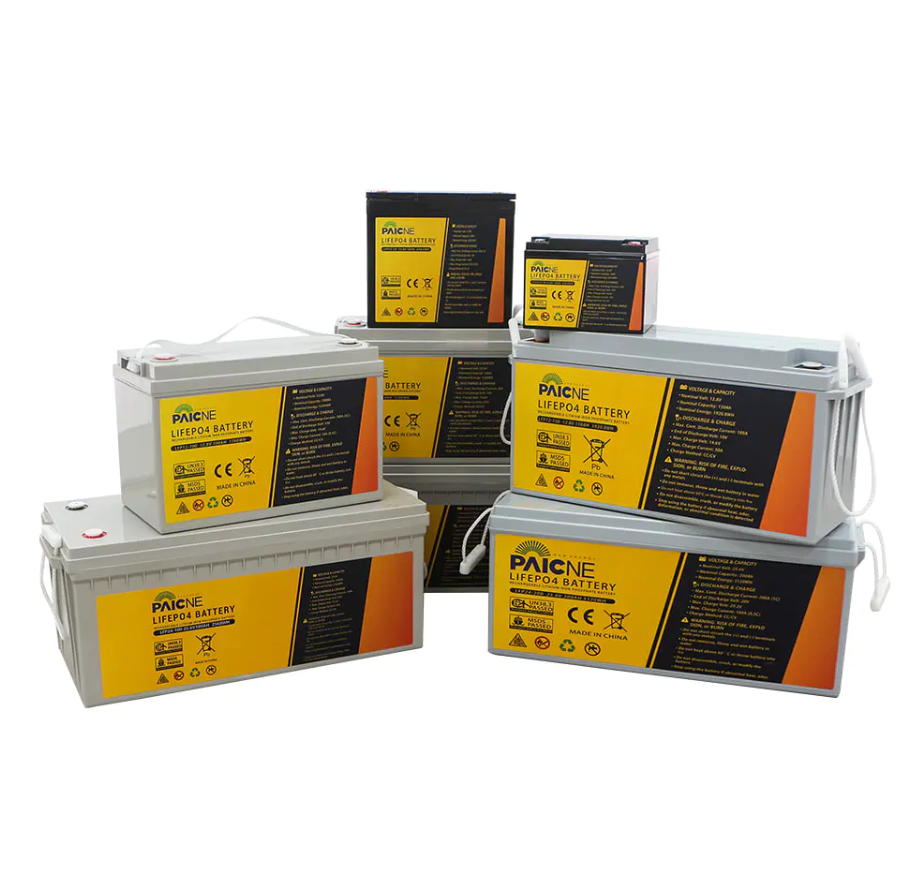Stability of Voltage Plateaus in Lithium Iron Phosphate Battery: A Key Performance Indicator

The voltage plateau stability of a Lithium Iron Phosphate Battery (LFP) is an intrinsic characteristic that significantly influences its performance reliability and consistency in power delivery. As a type of lithium-ion battery, LFPs are known for their distinct advantages over other chemistries, particularly in terms of safety and longevity. However, the stability of their voltage platforms is another aspect that sets them apart and is crucial for applications requiring a steady and predictable power output.
Lithium Iron Phosphate Battery, with its iron phosphate cathode, exhibits a flatter voltage plateau compared to other lithium-ion batteries, which have more sloping discharge curves. This flat voltage profile is advantageous for applications where a constant voltage supply is necessary, such as in solar energy storage systems or electric vehicles. The flat discharge curve of LFPs enables them to maintain a stable voltage output over a significant portion of their discharge cycle, which is not only beneficial for the efficiency of the devices they power but also for the batteries' management systems.
One of the key factors contributing to the voltage plateau stability of Lithium Iron Phosphate Battery is the chemical stability of the iron phosphate compound. The iron phosphate structure is highly resistant to degradation, even under continuous charge and discharge cycles. This resistance to degradation translates into a stable voltage output, as the structural integrity of the cathode material is maintained, allowing for consistent electron transfer and ion intercalation.
Furthermore, the thermal stability of Lithium Iron Phosphate Battery also plays a role in maintaining voltage plateau stability. LFPs are known for their ability to operate in a wider range of temperatures without significant performance degradation. High temperatures can cause the voltage of many lithium-ion batteries to drop, but LFPs can maintain their voltage plateau even in warmer conditions, which is a testament to their robustness and suitability for various environmental conditions.
In terms of long-term cycling, Lithium Iron Phosphate Battery shows excellent voltage plateau stability. The slow degradation rate of the iron phosphate structure means that the voltage profile remains consistent over thousands of charge and discharge cycles. This longevity is particularly attractive for applications where batteries need to maintain performance over extended periods, such as in grid storage or backup power systems.
However, it is important to note that while the voltage plateau of Lithium Iron Phosphate Battery is stable, it is also lower than that of other lithium-ion batteries. The typical nominal voltage of LFPs is around 3.2 volts, compared to around 3.7 volts for other lithium-ion chemistries. This lower voltage means that LFPs may not be the best choice for applications requiring high voltage, but for many applications, the stability and other benefits of LFPs outweigh this consideration.
In conclusion, the voltage plateau stability of Lithium Iron Phosphate Battery is a significant strength that contributes to its reputation as a reliable and durable energy storage solution. Its flat discharge curve, combined with its thermal and chemical stability, makes LFP an excellent choice for a wide range of applications where consistent and reliable power delivery is essential. As the technology continues to evolve, the performance of Lithium Iron Phosphate Battery, including its voltage plateau stability, is likely to improve further, solidifying its position in the market as a preferred choice for energy storage solutions.
Product Features:
1. High energy density: Lithium iron phosphate batteries have a high energy density, providing longer usage time and higher power output.
2. Long life: Lithium iron phosphate batteries use advanced materials and manufacturing processes, resulting in a longer service life and the ability to withstand more charge and discharge cycles.
3. High temperature tolerance: Lithium iron phosphate batteries can operate normally in high-temperature environments without being damaged or reducing performance due to excessive heat.
4. Fast charging: Lithium iron phosphate batteries support fast charging, allowing them to be fully charged in a short time, improving efficiency.
5. Safety performance: Lithium iron phosphate batteries have high safety performance, ensuring no explosion or fire hazards occur, making them safer and more reliable for use.
- Art
- Causes
- Crafts
- Dance
- Drinks
- Film
- Fitness
- Food
- Games
- Gardening
- Health
- Home
- Literature
- Music
- Networking
- Other
- Party
- Religion
- Shopping
- Sports
- Theater
- Wellness


